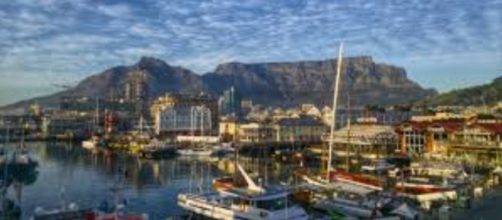Cape Town city will run out of water by 22 April 2018. I would formally like to invite all naysayers around global warming to spend a week there except I would hate to waste good water on you.
Water is a constitutional right in South Africa
Yet the ANC lead government of South Africa has not done enough to assist the City of Cape Town. In any other nation, this crisis would have been considered a national disaster well over 18 months ago and the state would be stepping in to ensure water delivery via rail, road and sea. The ANC government has only indicated a willingness to try and build another dam but so far citizens have heard a lot of rhetoric and seen no evidence of any real-time, practical deliverance.
Undoubtedly the ANC is well aware that the problem may be used to wrangle votes away from the Democratic Alliance, their official opposition, who hold the majority of council seats in Cape Town. It seems that the constitutional rights of Cape Town's South Africans are being largely ignored by the South African government.
https://t.co/tGBsXDXGO8 Scary stuff on the water crises in Cape Town.
— Tristan Pringle (@TristanPringle1) October 31, 2017
Global warming is now!
With a former average rainfall between 600mm up to 1400mm a year, the Cape Mediterranean climate has historically proven ideal for the production of wine, fruit and wheat. It's natural beauty and stunning beaches, whale spotting and great white shark diving, along with fishing and fine dining, makes it a popular tourist destination.
However, all these industries are currently crippled owing to the water crises. The estimated loss to the city is already pegged around R1.6 billion.
The last reasonable rains the city had, fell in the winter of 2014 but over the last 12 years, rainfall has consistently been at 30% less than normal. Dams are currently standing at 29% capacity and dropping daily.
Citizens are strictly limited to 86 litres per day and encouraged to shower over buckets in order to use the water collected to flush their toilets when necessary.
According to a study commissioned by the Western Cape government some time ago, the authors Mark Tadross and Peter Johnston establish that the average temperature has increased quite significantly as well, exacerbating evaporation and extending farming water requirements.
City has 300kms of coastline and global warming is affecting it
Cape Town city has over 300kms of coastline. The impact of Global warming is already being noted in rising sea levels which threaten sewerage processing plants and low-level housing projects. The change of climate is pressuring agriculture to the point of impacting severely on employment. Every city in the world should be studying what is going on in Cape Town today as it is a pattern that is inevitably going to threaten other cities, especially coastal ones.
Global warming is alive and well in Cape Town!

